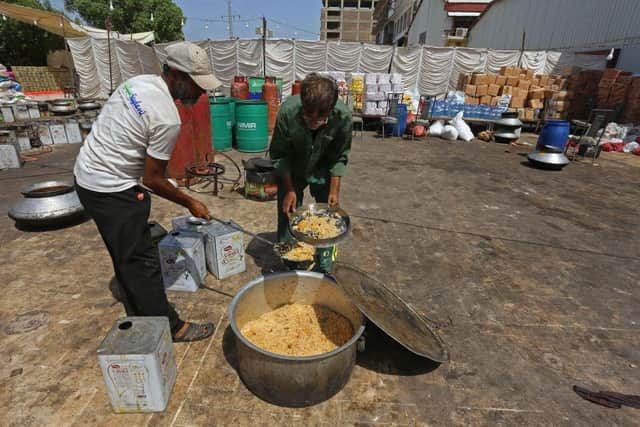Pakistan floods: Tens of thousands of people suffering from diseases as a result of flooding, World Health Organisation warns
The WHO said more than 1,290 people had lost their lives, while 12,500 have been injured as a result of the disaster, Meanwhile, diseases such as malaria, typhoid, polio, measles, skin and eye infections and acute diarrhoea have affected tens of thousands more people.
This comes as officials in southern Pakistan have warned more flooding is expected as Lake Manchar swelled following continuing monsoon rain.
Advertisement
Hide AdAdvertisement
Hide AdWHO said 6.4 million people were in “dire need” of humanitarian aid, while almost 634,000 displaced people are living in camps. Mobile health teams have been redirected to flood-affected areas to provide health and nutrition services for pregnant women, new mothers and their babies, and children.


More than 4,500 medical camps have been set up by the Pakistani government, WHO and health partners to ensure that people have access to basic and essential health services.
Meteorologists forecast more rain in the region in coming days. Authorities have urged villagers in the Jamshoro and Dadu districts of Sindh province near the lake to evacuate.
The rising waters have reached dangerous levels and pose a threat to a protective dyke and embankment, meteorologists said. The lake, located west of the Indus River, is the largest natural freshwater lake in Pakistan and one of the largest in Asia. Parts of Dadu district have already been flooded.
The development comes a day after Pakistan appealed again to the international community for aid for victims of the unprecedented flooding from monsoon rains that have left millions homeless around the country. Planes from around the world have been bringing supplies to the impoverished country across a humanitarian air bridge.
Experts have blamed the unusual rainfall and flooding on climate change.
WHO said more than 1,460 health facilities in Pakistan – around 10 per cent of all facilities – have been affected by the flooding, of which 432 are fully damaged and 1,028 are partially damaged. The organisation warned access to health care facilities, health care workers, and essential medicines and medical supplies was limited.
Dr Ahmed Al-Mandhari, WHO regional director for the Eastern Mediterranean, warned the level of damage and destruction was unprecedented.
Advertisement
Hide AdAdvertisement
Hide AdHe said: “The current scale of damage and destruction due to the floods is like none seen before in Pakistan – a result of long-term global climate change leading to more severe weather conditions. Tens of millions of people are now forced to use unsafe water, both to drink and for their daily needs. They are also exposed to the elements due to flood damage and destruction of their homes, and many are displaced."
He added: “Millions of men, women and children have already lost their homes and their livelihoods – they should not lose another basic right: the right to health care.
“Despite limited resources, Pakistan has been one of the first countries to offer support when other countries in the region have faced their own humanitarian emergencies, including their generous hosting of currently 1.3 million refugees. It is now our responsibility to come together and help the people of Pakistan, at a time when they need our support the most.”
Comments
Want to join the conversation? Please or to comment on this article.
